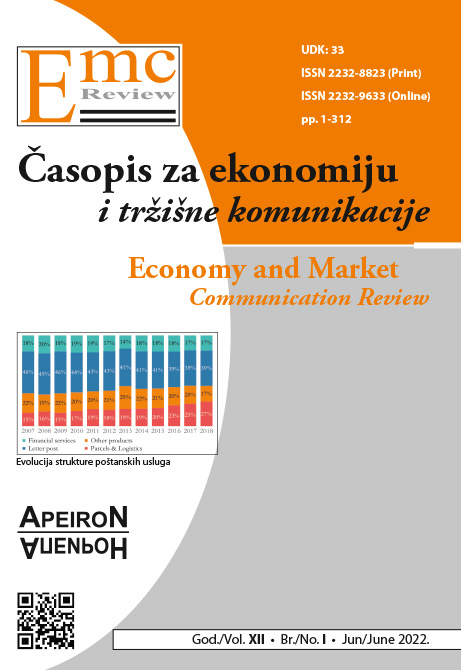DIGITAL SIGNATURE AND POSSIBILITIES OF ITS APPLICATION IN THE BUSINESS SYSTEM OF BOSNIA AND HERZEGOVINA
DOI:
https://doi.org/10.7251/EMC2201100BAbstract
Digital signature in the business system of Bosnia and Herzegovina is something that has not yet found its application. According to the Law on Customs Policy of Bosnia and Herzegovina, this method of signing is only applied to freight forwarders, because they certify their documents in the procedure of electronic transport of goods in a new way and send them to the Administration system electronically. In other spheres of the business world, this signature is used exclusively as a transitional solution. This paper, in addition to examining the legal possibility of its application, and the benefits that the business system would have from its implementation, also made an analysis that shows the impact of digital signatures on the business system of a country, and to what extent it facilitates business. The aim is to analyze the degree of application of digital signatures in the BiH market. In addition, the most widely used algorithms in the digital signature cryptosystem with a focus on mode and security will be analyzed. Also through the paper we will look at the principles on which digital signing is based as well as the methods by which we determine the authenticity of the sender. Next, we will define the areas of application of the digital signature. The aim of this paper is to prove that a digital signature in Bosnia and Herzegovina would greatly facilitate the way of doing business, and simplify procedures in the business system, and thus raise the competitiveness of the economy compared to the current situation. According to the above, the hypothesis of this paper is that digital signature, in addition to digital printing and digital communication, has the greatest impact on the efficiency and speed of business between companies operating in Bosnia and Herzegovina. The hypothesis was tested using a multiple regression model, which was investigated and processed by the author. The author investigated and analyzed the impact of digital signature, digital printing and digital communication on business efficiency in a sample of 235 companies using a multiple regression model. The results showed that all three variables have an impact on business efficiency to a certain extent. According to the results, however, it can be concluded that the digital signature and then the digital stamp have a very high impact on business efficiency.It has been shown that in Bosnia and Herzegovina there is a general perception that the use of digital signatures and its usefulness at the global level, however, by applying adequate methods and techniques, can be improved and improved and thus increase the number of digital signature users.
